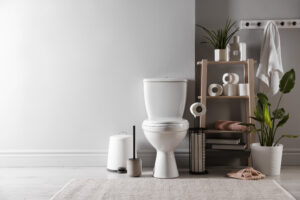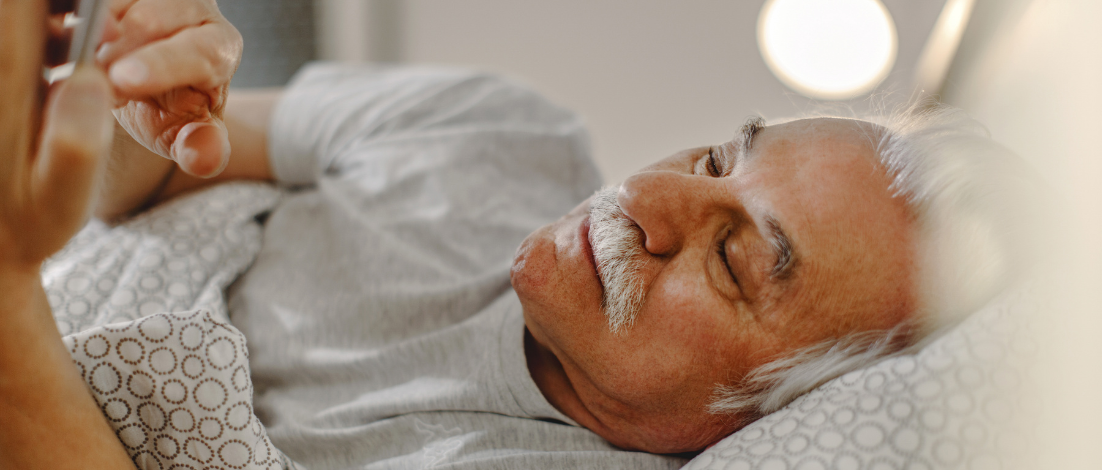Urinary Frequency Secondary to Sleep Apnea: A Veteran’s Guide
For many veterans, service-connected sleep apnea is a well-known condition that often requires a CPAP machine. But sleep apnea’s effects can go beyond breathing issues. It can also lead to other problems you may not have connected, like frequent urination.
According to a study published in the Journal of Clinical Sleep Medicine, nighttime urination, also known as nocturia, affects up to half of all people with obstructive sleep apnea (OSA). It’s a common but often overlooked issue. Understanding how to link this condition for your VA benefits journey is a key step toward a comprehensive medical evidence strategy.
Understanding the Link: Sleep Apnea and Urinary Frequency
While the connection can seem complex, medical research has shown a clear link between sleep apnea and the need to urinate often. Recent research shows that the more severe your sleep apnea, the more frequent your nocturia can be.
Here are a few ways these two conditions may be linked:
- Hormone Release: When you have pauses in breathing during sleep apnea, it can cause your heart to release a hormone called Atrial Natriuretic Peptide (ANP). This hormone tells your kidneys to get rid of more water and salt, which leads to more urine.
- Disrupted Sleep: Sleep apnea keeps you from reaching the deep, restful stages of sleep. During deep sleep, your body makes a hormone that helps you produce less urine at night. When your sleep is disrupted, you make less of this hormone, which can make you need to use the bathroom more often.
- CPAP Use: While CPAP machines can be life-changing for many, the positive air pressure they provide can sometimes lead to a slight increase in ANP release or affect fluid balance. This can cause a mild diuretic effect, or an increase in urine.
This connection shows how one service-connected condition can lead to other health problems. We are here to help veterans like you gain clarity on how your symptoms may be linked to your service, an important step in exploring potential eligibility for benefits.

The Domino Effect: Linking Your Health Conditions
Think of your health conditions not as separate problems, but as a series of interconnected events, like a row of dominoes. Your benefits journey is all about drawing a clear line, a medical nexus, from one condition to another.
First, you must establish a connection between a condition and your military service. This is your primary link. From there, you can show how that service-connected condition led to a secondary condition. This domino effect can be important for your potential rating because the VA considers the combined impact of all your service-connected conditions. By documenting how one disability led to another, you create a more complete picture of your health.
Medical evidence is the key to showing how your disabilities are linked to both your service and to one another.
Essential Medical Evidence for Your Secondary Condition
To potentially receive VA benefits for urinary frequency secondary to sleep apnea, you will need to show three key elements:
- A Current Diagnosis: A medical professional needs to have diagnosed you with urinary frequency or nocturia.
- Service-Connected Sleep Apnea: You must already have a service-connected sleep apnea diagnosis.
- A Medical Nexus: This is a professional medical opinion from a doctor that explicitly links your urinary frequency to your service-connected sleep apnea. This is the most crucial part of proving a secondary connection.
A robust medical opinion, again, the nexus letter, is vital. A strong letter from a medical professional (like a urologist or pulmonologist) should review your medical history, explain the medical reasons for the connection, and state that it is “at least as likely as not” that your urinary frequency is caused by or made worse by your service-connected sleep apnea.

How the VA Rates Urinary Frequency
The VA evaluates urinary frequency and related bladder issues under the genitourinary system (38 CFR Part 4, Subpart B, Diagnostic Code 7519). The rating depends on the frequency of urination (day and night) and how much it affects your daily life.
General rating criteria for bladder issues are:
- 60%: Voiding more than 10 times daily, or with severe constant urination that requires a catheter.
- 40%: Voiding 8 to 10 times daily, or with frequent urine leakage.
- 20%: Voiding 6 to 7 times daily, or with occasional urine leakage.
- 10%: Voiding 4 to 5 times daily, or with slight urine leakage.
The highest rating for urinary frequency is usually assigned when it severely interferes with daily life or requires continuous management.
- Learn more with our Guide to VA Ratings for GenitourinaryConditions
Taking the Next Step in Your Health Journey
Urinary frequency, especially at night, can be a major and often underestimated consequence of sleep apnea. It can severely disrupt sleep and your overall well-being. By gaining a clearer understanding of your medical situation and ensuring your journey is well-documented, you can take control of your path forward.
Partner With Trajector Medical: Supporting Your Medical Journey
At Trajector Medical, we’re dedicated to helping veterans translate lived experiences into clear, detailed medical documentation aligning with anticipated rating guidelines. Our medical team ensures your complete story is captured, supporting your journey toward the benefits you’ve earned through your service.
Start your FREE Medical Evidence evaluation today or watch real testimonials and stories of our clients.











